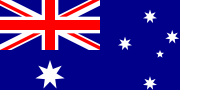 Despite quite a clear disapproval to the plans, Australia's prime minister Julia Gillard has renewed her backing for a web filter. The proposed filter would block selected content such as depictions of drug use, child sex abuse and bestiality. Gillard says her backing is driven by a "moral question."
Despite quite a clear disapproval to the plans, Australia's prime minister Julia Gillard has renewed her backing for a web filter. The proposed filter would block selected content such as depictions of drug use, child sex abuse and bestiality. Gillard says her backing is driven by a "moral question."
The problem they have with the plan is it sets a precedent for censorship. User groups have formed on social networking sites, slamming the government for pushing censorship over Australians and likening the filter to the firewalls used by Iran and China.
"My fundamental outlook is this: it is unlawful for me as an adult to go to a cinema and watch certain sorts of content, it's unlawful and we believe it to be wrong," Gillard said in a press club address. "If we accept that then it seems to me that the moral question is not changed by the medium that the images come through."
There are serious questions that need to be asked about plans such as these. By what method is content determined to require restriction, and who makes that call? Will the methodology change over time and who will ultimately be in control of it?
Also, while it is easy to use problems like child porn to push such a system like this, what is the full list of content types that can be blocked and will this change too over time? And of course the biggest question is whether a blanket filter covering the country's Internet users is really required? Do ISP's already co-operate with child protection agencies online to block known sources of child abuse images, for example?














